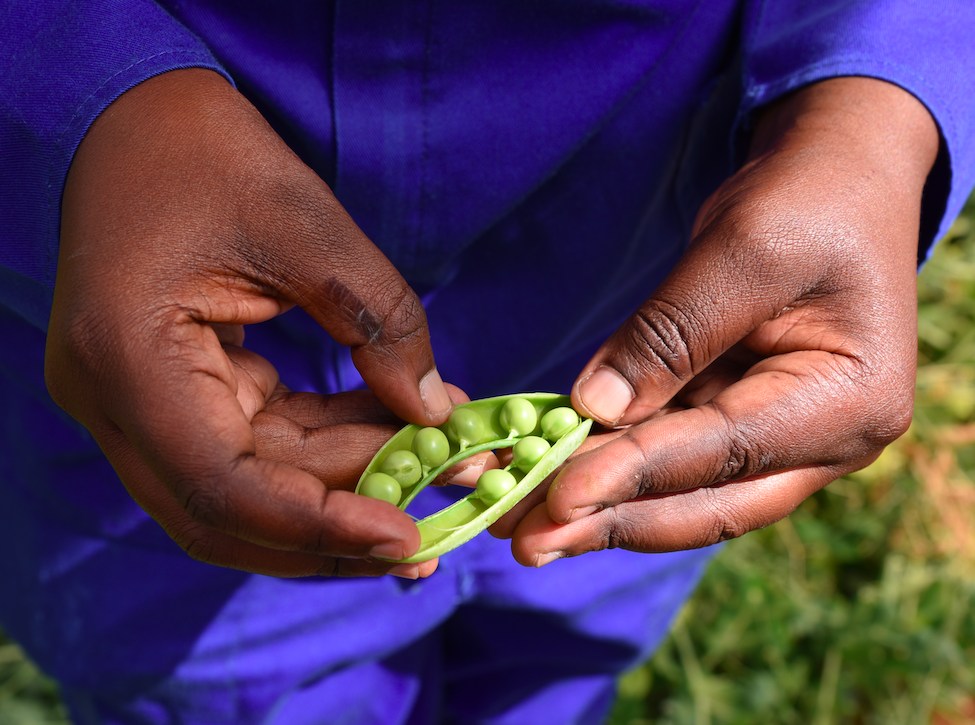Feeding a continent
There are 33 million smallholder farmers on the African continent; these smallholders account for the majority of Africa’s nutritional consumption. Yet even with high levels of primary production, 217.8 million people in Africa were undernourished between 2014-2016: 57 percent of those were in East Africa where commodities such as tea and coffee take a greater priority, 27 percent in Central Africa, 14 percent in Western Africa and two percent in Southern Africa. Food security remains a herculean challenge for all the regions on the continent to varying degrees.
In an endeavour to ensure local, safe and sustainable fresh produce, the EU is funding the Farmer2Market project, which is active in six provinces within South Africa: Gauteng, Eatern Cape, Limpopo, KwaZulu Natal, North West, and Mpumalanga. The project has trained 750 emerging farmers on localg.a.p., a local standard that ensures safe food production practices for agricultural supply chains and a key building block for producers who need GLOBAL G.A.P. certification to access demanding markets.
As the consumer market becomes enlightened on the effects of unsafe production practices all over the globe, they are starting to demand the assurance of food safety measures from farm to fork. Retailers have raised the bar and only demand to work with farmers who are certified in Global G.A.P, an internationally recognized standard for safe and sustainable agricultural production. This has proven to be the main barrier for smallholders to access formal markets.
Making market connections
While smallholder farmers recognize challenges in accessing formal markets, many don’t yet understand the power of certification, especially when engaging mainstream retailers. It became pertinent for the programme to model success by demonstrating the opportunities that localg.a.p. or GLOBAL G.A.P. certification can unlock. In 2019, the Farmer2Market project facilitated market linkages for three Gauteng-based farmers who were already GLOBALG.A.P. certified. Despite being certified, Mr. Moya Manaka of Manaka Farms, Mr. Tshepo Mahloko of Cradle farms and Ms. Lerato Botha of Farmerlee Farms, had trouble accessing formal markets. Through the programme’s interventions and facilitation, all three farmers are now suppliers of one of the biggest retailers in South Africa, Pick N Pay.
Manaka Farms
When asked why he started farming, Mr. Manaka responded, “There [are] food security issues in Africa and a lot of people are going hungry.” This perspective has fueled his passion to see his farming business grow. Mr. Manaka has 3 different plots spread across Tarlton, in the West Rand area of the Gauteng province in South Africa. Known as Manaka farms, the plots have a combined total of 51.5 hectares, where Mr. Manaka has been producing a wide range of vegetables including lettuce, cabbage, chillies, spinach, kale, broccoli and cauliflower for almost 5 years now. As of October 2020, Mr. Manaka will be supplying Pick N Pay with spinach, cabbage, broccoli and cauliflower, on a weekly basis.
Farmerlee Farms
Also situated in Tarlton, is Lerato Botha’s Farmerlee Farms, a 22-hectare plot with 17 cultivated hectares and an onsite Packhouse. The farm, which was previously known as Tila’s Herbs Farms, was founded by Lerato’s father, Mr. Jimmy Botha, 15 years ago. In 2019, we linked Farmerlee farms with export markets through a contract with Yukon and subsequently, as of October 2020, Farmerlee Farms will also be supplying Pick N Pay with parsley, rosemary, coriander and kale.
Cradle Farms
Mr. Mahloko’s farm, Cradle farms, is situated in Krugersdorp, just a stone throw away from Tarlton, and has been in operation for close to a decade. The farm is a 21.3 ha plot with 1.2 ha multispan tunnels and 2.5 ha open fields under cultivation. The farm produces peppers (red, yellow, green), baby marrows, tomatoes, lettuce, patty pans, spinach and baby marrows and will be supplying Pick N Pay with patty pans, marrows and peppers as of October 2020. “This is the best news we have received in a while,” enthused Mr. Mahloko upon receiving the contract.
All three farmers are passionate about Africa feeding itself, and this opportunity allows for their produce to reach a wider consumer base. While certification is not a panacea to our food security or the many challenges faced by smallholders, it is key for traceability and therefore opens doors to a wider range of markets both locally and internationally.
Read more about our work in Fruits & Vegetables.

